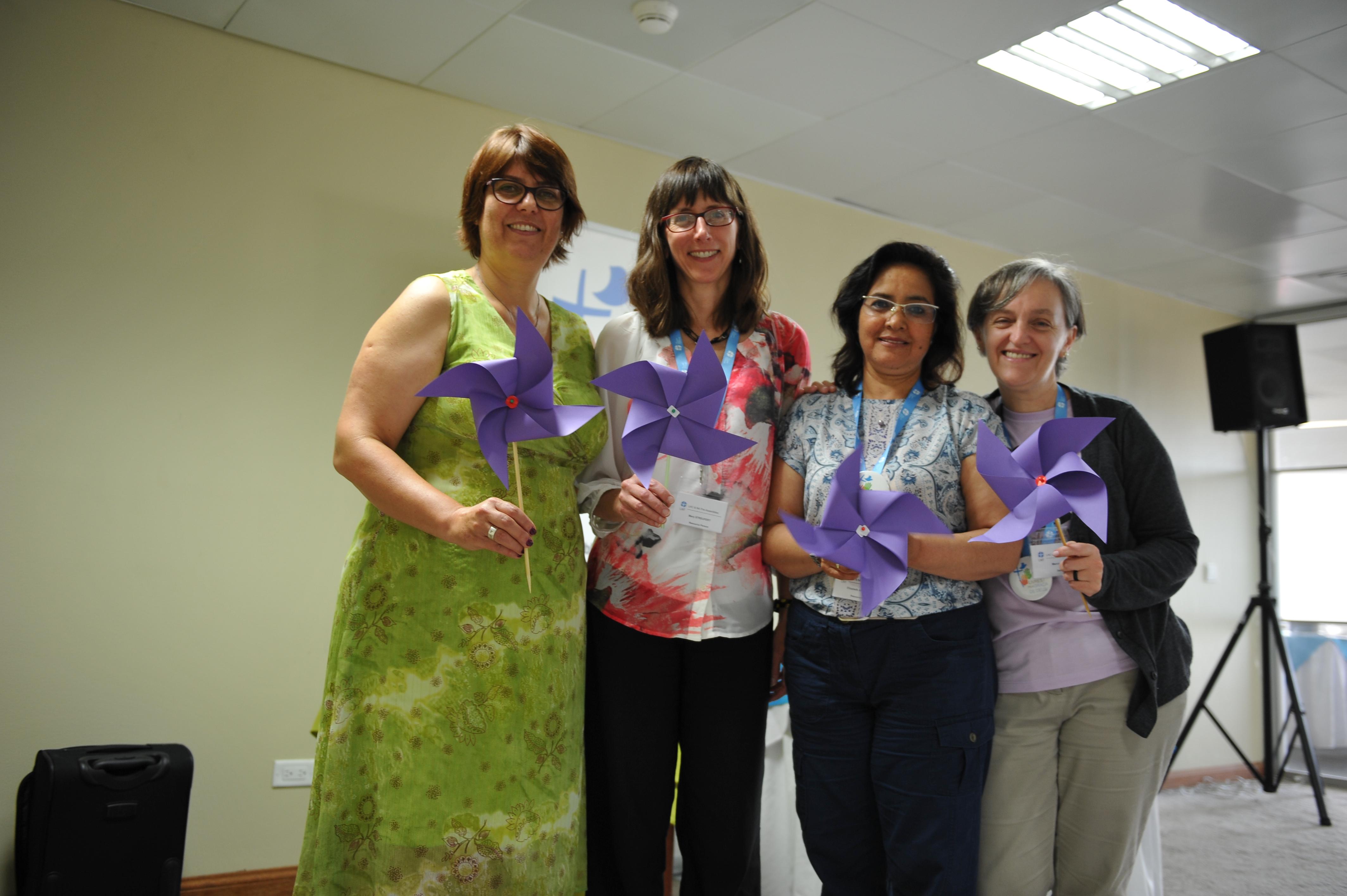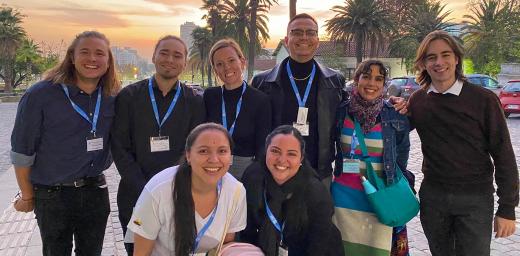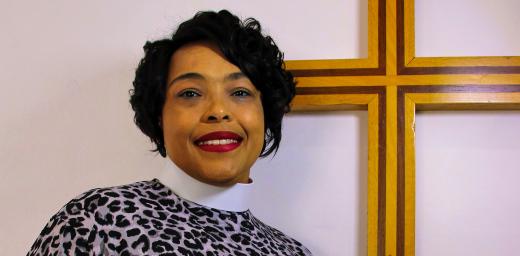Churches’ prophetic voice critical in struggle for gender justice

LWF WICAS secretary Rev. Dr Elaine Neuenfeldt and regional coordinators Dr Mary Streufert (United States), Elizabeth Arciniegas Sanchez (Colombia) and Rev. Marcia Blasi (Brazil), at the women's pre-meeting for the Pre-Assemblies for Latin American & the Caribbean and North America, in Paramaribo, Suriname. Photo: LWF/P.Mumia
PARAMARIBO, Suriname/GENEVA, 28 August 2016 (LWI) – The church’s prophetic voice remains critical in the struggle for gender justice even in regions of The Lutheran World Federation (LWF) that are actively engaged in advocacy for women’s rights.
This was one of the emphases from meetings to prepare women for participation in the Assembly, LWF’s highest decision-making body. The LWF Pre-Assemblies for Latin America and the Caribbean (LAC) and North America are taking place in Paramaribo, hosted by the Evangelical Lutheran Church in Suriname.
Women delegates and other officials from the 19 LWF member churches in the two regions said it was encouraging to see how the LWF Gender Justice Policy was gaining wide acceptance among women’s networks in the churches. However, it was important for church leaders to understand that the struggle for equal rights for women and men in church and society was not uniquely the concern of women. The aim is to ensure that this is integrated as a cross-cutting issue; there is slow progress but it remains a major challenge, the delegates said.
We need to reaffirm gender justice so that it can be integrated in the church and not as an issue for women only. It is part of the churches’ prophetic call in society."
“In some contexts, the implementation of the gender justice policy has given rise to opposition against women’s empowerment for theological education and the ordained ministry,” remarked Rev. Marcia Blasi, from the Evangelical Church of the Lutheran Confession in Brazil.
The Gender Justice Policy, endorsed by the LWF in 2013 and shared with its member churches for implementation, affirms commitment to develop local frameworks and action plans to put gender justice into practice in all spheres of the life of the communion and its churches. The work is carried out through the Women in Church and Society (WICAS) networks.
“We need to reaffirm gender justice so that it can be integrated in the church and is not treated as an issue for women only. It is part of the churches’ prophetic call in society,” said Elizabeth Arciniegas Sanchez, WICAS coordinator for LAC.
Public commitment
The women’s pre-meetings were organized to explain how the LWF communion of churches relates to its member churches and the role of delegates in the Assembly. Participants noted it was important for those aspiring to be elected as the next LWF leaders to show commitment towards gender justice. They suggested formulation of mechanisms to make public the commitments of those who are candidates for such leadership roles.
Many of the participants noted that despite growing awareness about women’s rights throughout the world, gender-based violence had increased in several communities and was contributing to other forms of exclusion, especially poverty.
Dr Mary J. Streufert, WICAS coordinator for North America noted that churches need to strategize together to address the growing violence directly targeting women through human trafficking and exploitation of indigenous people’s land and other resources and the impact on women’s lives. “Gender justice must be addressed in this context of growing vulnerabilities that push women further into poverty,” noted Streufert who is also the director of the program for gender justice at the Evangelical Lutheran Church in America.
Streufert underlined the need for an approach that looks at why “women are disproportionately affected by violence. “Reconciliation cannot happen without the justice part,” she added.
The women participants also discussed LWF WICAS activities to strengthen theological education for women by sharing strategies and opportunities for training. They also heard an update on the Women on the Move process, started in 2013 to articulate women’s ongoing contribution to the Protestant Reformation as the LWF prepares for the 500th anniversary of the Reformation and Twelfth Assembly in 2017.
The women will present a final message to the Pre-Assemblies, which conclude on 3 September.





